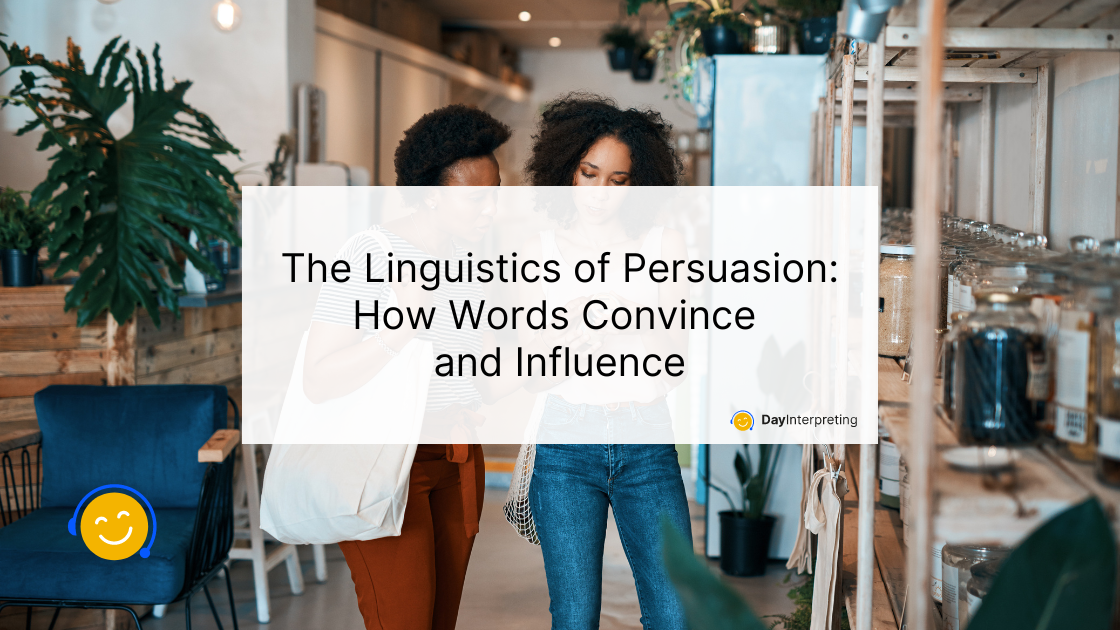Have you ever wondered why certain words can make you want to buy something or vote for someone? Or why a well-chosen phrase can make you feel inspired or moved? Welcome to the linguistics of persuasion, where language plays a magical role in convincing and influencing people. Let’s dive into how words can be so powerful!
What is Persuasion?
Persuasion is when you use words and ideas to convince someone to think or do something in a particular way. It’s like when a friend persuades you to watch their favourite movie or try a new game. Persuasion happens all around us—when we watch ads, listen to speeches, or even during a friendly debate. But how does it really work?
The Linguistics of Persuasion – The Power of Words
Words are more than just letters strung together; they have the power to influence our thoughts and actions. Here are some ways words can be used to persuade:
1. Emotional Appeal
One of the strongest ways to persuade someone is by appealing to their emotions. Imagine you’re watching a commercial about a sad puppy waiting for a home. The commercial might use words that make you feel sorry for the puppy, and this emotional response might lead you to adopt a pet or donate to an animal shelter.
Words that evoke feelings like happiness, sadness, or excitement can be very convincing. For example, phrases like “limited time offer” or “life-changing experience” can make you feel like you need to act quickly or that you’re missing out on something amazing. These types of words are usually used by marketers through conversion-focused copywriting to trigger emotions, increase engagement, and drive specific actions.
2. Ethos: Building Trust
Ethos is about building credibility. When someone speaks or writes with authority and expertise, we’re more likely to believe them. For instance, if a doctor talks about a new health trend, you might trust their advice more than if it came from a random person on the street.
In writing and speaking, using phrases like “experts agree” or “scientific research shows” helps build trust and makes the message more persuasive. It’s like having a trusted friend give you advice instead of someone you don’t know well.
3. Pathos: Appealing to Feelings
Pathos is all about emotions. Persuasive language often includes stories or situations that trigger feelings. For example, if you hear a story about a community coming together to help someone in need, you might feel inspired to help others too. Words that describe feelings and experiences can make the message more relatable and impactful.
Techniques for Effectively Deploying the Linguistics of Persuasion
So, what are some tricks that persuaders use to make their words more convincing? Here are a few techniques:
1. Repetition
Repeating a message or a phrase can make it more memorable. Ever heard a catchy slogan or jingle that you can’t get out of your head? That’s repetition at work! By hearing something over and over, it starts to stick in your mind.
2. Loaded Language
Loaded language uses words with strong connotations to influence how we feel about something. For example, calling something “cheap” might make it seem low-quality, while “affordable” makes it seem like a good deal. Choosing the right words can change how we perceive an idea or product.
3. Storytelling
Stories are a great way to persuade because they engage our imaginations and emotions. When someone tells a compelling story, we connect with the characters and their experiences, making the message more convincing.
Examples of Persuasive Language
Let’s look at some real-life examples of persuasive language:
1. Advertising
Advertisements are full of persuasive language. Think of phrases like “best in class” or “guaranteed results.” These words aim to convince you that the product is superior or will meet your needs perfectly.
2. Political Speeches
Politicians use persuasive language to sway voters. They might use powerful phrases and promises to appeal to your desires and values. For instance, a politician might say, “Together, we can build a brighter future,” to inspire hope and unity.
3. Social Media
On social media, influencers use persuasive language to get you to follow them, buy products, or join causes. They might use catchy hashtags, compelling stories, or emotional appeals to connect with their audience.
Final Thoughts
The linguistics of persuasion is like a secret recipe where words are the main ingredient. By understanding how words can influence thoughts and actions, we become more aware of how we are being persuaded and can use these techniques wisely.
Next time you hear a persuasive message, think about the words being used and how they might be affecting you. Remember, words have power, and with great power comes great responsibility!





0 Comments